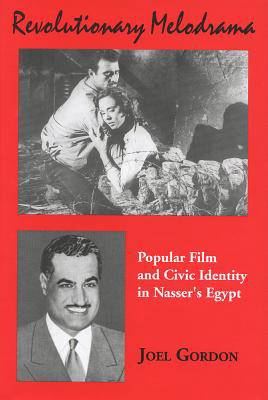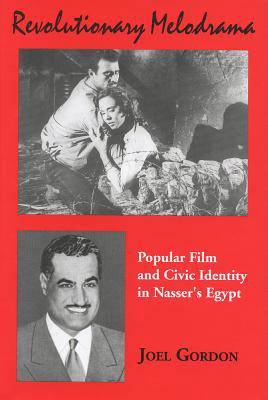
- Retrait gratuit dans votre magasin Club
- 7.000.000 titres dans notre catalogue
- Payer en toute sécurité
- Toujours un magasin près de chez vous
- Retrait gratuit dans votre magasin Club
- 7.000.0000 titres dans notre catalogue
- Payer en toute sécurité
- Toujours un magasin près de chez vous
67,95 €
+ 135 points
Description
Revolutionary Melodrama explores intersections between cinema and politics during the Nasser era, a period in which a military regime embarked upon the construction of a new civic identity for an independent Egypt. The way in which filmmakers participated in this venture provides the focal point, with their cultural production as the central texts which both shaped and were shaped by an emerging sense of a new Egypt. With the blessing of a "revolutionary" regime, filmmakers began to explore issues of social inequity, colonial and feudal exploitation, changing gender roles, religious and cultural traditions and, finally, the disappointments of the revolutionary project itself. No realm of cultural production holds greater import for the Nasser era than the cinema. Even those who are active in deconstructing the last vestiges of the Nasserist state trumpet the Nasser era as a "golden age" of the arts and media. The faces and voices on big and little screens, many still alive, some still working, constitute a pantheon who many Egyptians, young and old alike, feel will never be replaced. The author approaches his subject as a scholar of the early Nasser years who has turned his attention to questions of civic identity and its relationship to art and political symbology. The work is enriched and informed by extensive interviews with a large circle of people engaged in the production or analysis of Egyptian cinema and broadcast, then and now: directors, actors, critics, historians, scenarists, censors, musicians, writers, politicians, and government ministers. Egyptian film remains a largely ignored topic in an ever-growing literature on film and culture. This book sheds new light on what many consider to be the greatest era of Egyptian filmmaking, one that remains formative for many engaged in creating Egyptian films today.
Spécifications
Parties prenantes
- Auteur(s) :
- Editeur:
Contenu
- Nombre de pages :
- 300
- Langue:
- Anglais
- Collection :
Caractéristiques
- EAN:
- 9780970819901
- Date de parution :
- 31-12-02
- Format:
- Livre relié
- Format numérique:
- Genaaid
- Dimensions :
- 157 mm x 234 mm
- Poids :
- 635 g

Les avis
Nous publions uniquement les avis qui respectent les conditions requises. Consultez nos conditions pour les avis.






